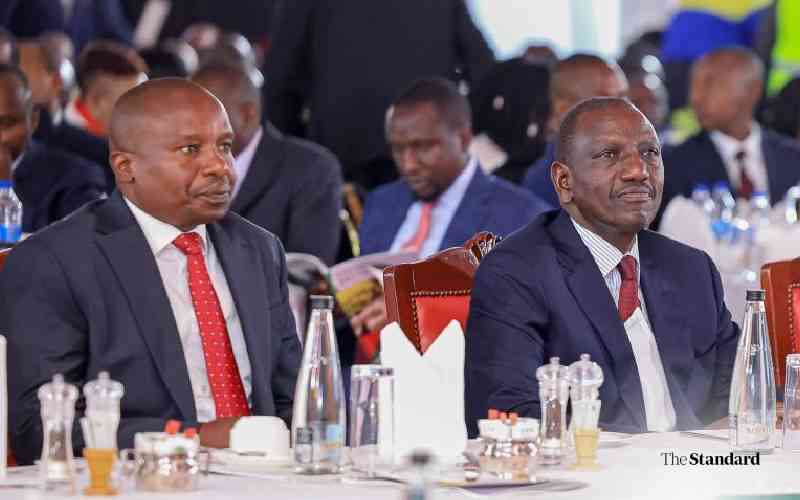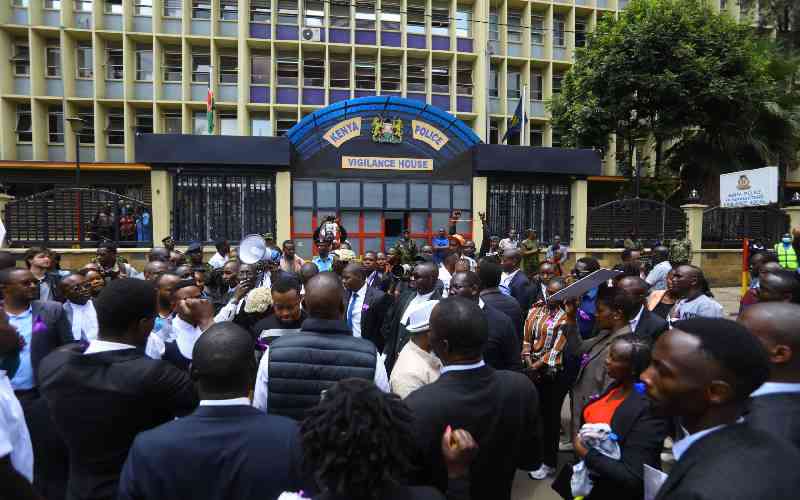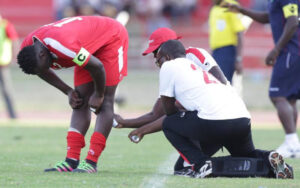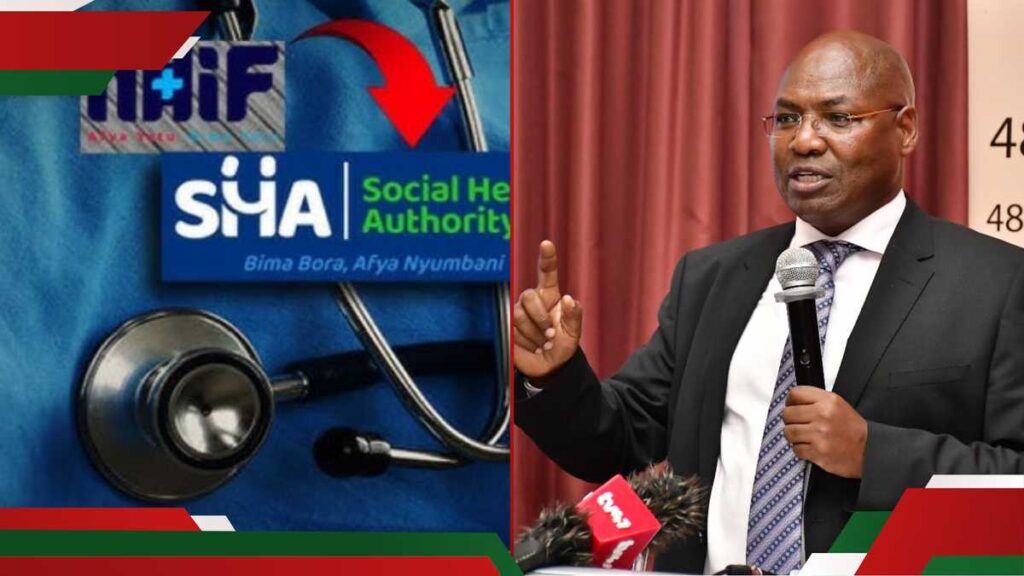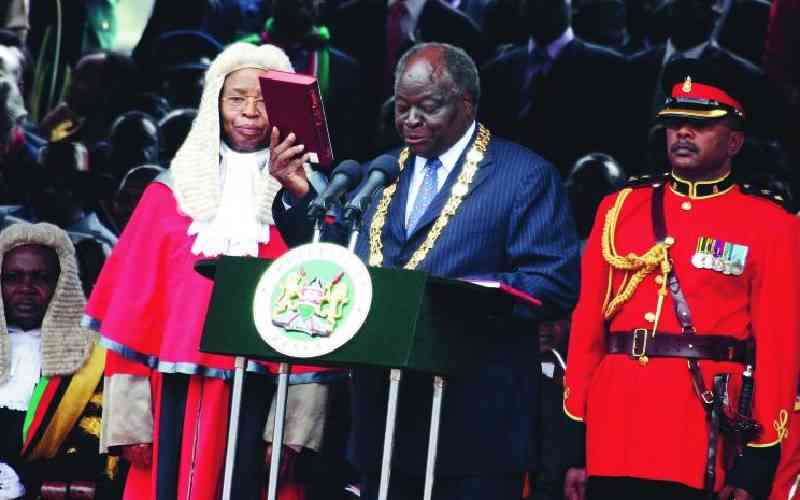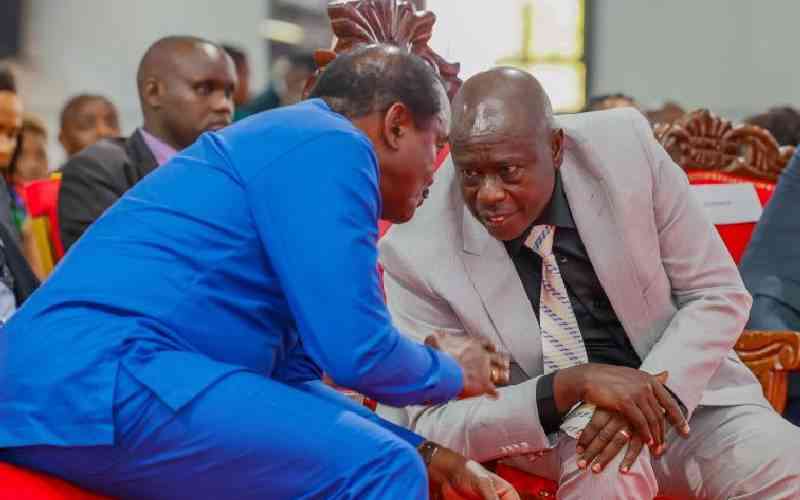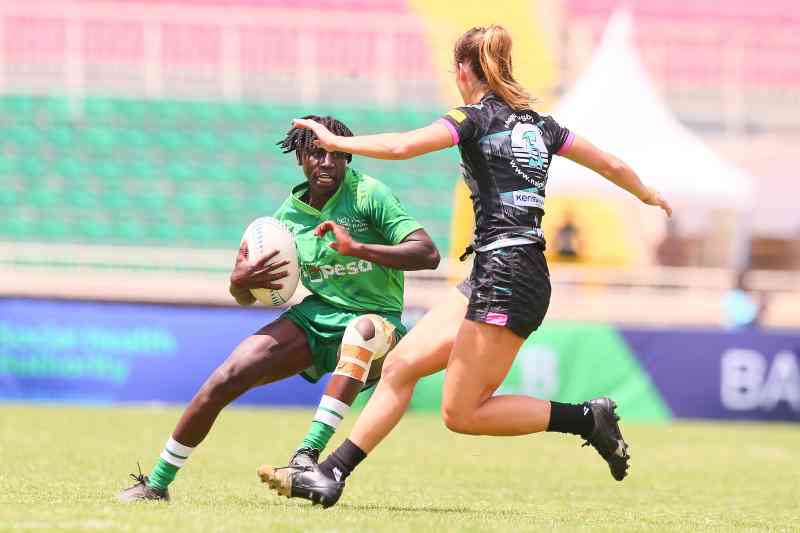From quoting Bible verses to singing, praying, and praising God, the country’s top leadership gathered for a breakfast, breaking away from their usual political noise.
For a few hours on Wednesday, Kenyans were spared heavy political rhetoric as the leaders united under the theme “Rise and Rebuild” during the 22nd National Prayer Breakfast in Nairobi.
President William Ruto’s speech centered on reconciliation. He apologised, albeit with an “if”, to the Gen Z and neighbouring countries.
“To our friends from Tanzania, if we have wronged you in any way, forgive us. To our friends from Uganda, if Kenyans have done anything wrong, we apologise. To our children, if there has been any misstep, we apologise. To our neighbours, if we have erred, we want to build relationships that will make our country great and move us forward. Today, God has made it possible for us to bridge divides between our political parties,” he said.
His remarks followed a message of reconciliation from former American football professional and renowned motivational speaker Rickey Allen Bolden.
Bolden noted that the young people, some who have gone to college, bought homes and married, were crying out for the right to be treated as adults and respected.
“I don’t care how many building projects we undertake; if we do not rebuild relationships, trust, love, and respect, we’ve achieved little. What about saying, ‘How do I build a bridge?’ What about the neighbour you don’t like? What about your Gen Z? How do you build that bridge?” he said.
“Last year, when my brother Earl and I returned home from the prayer breakfast, we saw Gen Z’s frustration. Earl asked, ‘Rick, what’s the problem?’ I said, ‘Gen Z is dying to be loved, to have a seat at the table, to be respected.’ Some of our Gen Zs are smarter than we are.”
He urged the leaders to acknowledge the violence meted out on protesters. “Wouldn’t it be beautiful if leaders stood up and said, ‘We had you arrested, and we know that was traumatising. We’re sorry’? Or, ‘We shut down the internet, your primary source of communication, and we’re sorry. Now we want to bring you to the table so you can have a voice, because you’re no longer children—you’re adults.’”
Last year, a Gen Z-led uprising nearly brought the country to a standstill, forcing Ruto to set aside the Finance Bill, 2024, and sack his Cabinet. The government’s forceful response resulted in about 60 deaths and 32 abductions, with some of those kidnapped yet to be accounted for.
The President’s remarks also came against the backdrop of tensions between Kenya and Tanzania over the recent torture and deportation to Kenyans, who had gone to attend the hearing of a court case involving opposition leader Tundu Lissu.
“We must be careful to thank God for the blessing of a great country and the strides we are making together. As we rebuild relationships among ourselves, with our sons and daughters, our children, our neighbouring countries, and beyond, we must always be grateful for what God has done for us as a nation. It is said that if we are not thankful for the little, we can never be grateful for more,” said Ruto.
Notably absent from the breakfast tables were opposition politicians such as Wiper’s Kalonzo Musyoka and Eugene Wamalwa, who believe the government has committed unforgivable acts in suppressing human rights and implementing burdensome fiscal policies.
Speaking separately, several opposition parties dismissed the President apology as insincere. They questioned the timing and motive of the apology, demanding justice for Kenyans killed during last year protests and activists deported from Tanzania.
Stay informed. Subscribe to our newsletter
“We take note of the reconciliatory tone and public apology issued by President William Ruto. While the shift in tone is welcomed, we must remind the President that apologies, however well-intentioned, must be accompanied by tangible action if they are to carry any meaning for the Kenyan people,” said the statement ready by People’s Liberation Party Secretary General Asha Bashir.
The leaders said those responsible for abductions, torture and extra-judicial killings must be punished, and victims compensated.
In his message of peace and unity, President Ruto urged Kenyans to work together, focusing less on finding fault and more on building bridges to create a greater nation.
He expressed confidence in Kenya’s future, stating, “I have no doubt that our country is blessed, and its future will be greater than its past.”
Ruto outlined his scorecard, saying that the “broad-based” government had united the country.
“The word of God tells us how good and pleasant it is for brethren to live together in unity. It is God’s perfect will for us to live in unity across political, community and religious divides. This nation will be strong, and we will achieve great exploits,” he said.
His deputy Kithure Kindiki called for reflection on the nation’s journey, noting that the prayer breakfast is a valuable tradition for contemplating Kenya’s shared destiny.
“We need to evaluate our achievements, missed opportunities, and outstanding tasks in the socio-economic transformation of our country. We have an opportunity to reconcile and build better relationships as citizens, neighbors, and across generations, despite challenges, to realise a more cohesive, united, and equitable country, continent, and globe,” he said.
He emphasised the importance of intergenerational friendship and solidarity, stating that no generation was superior to another.
“Perhaps as older people, we need to treat our children, who are now adults, with more respect and listen to them. Where we go wrong, there’s no harm in acknowledging it.”
However, he urged young people to respect authority and be open to mentorship. “While we respect them, hear them, and apologise when we’re wrong, they should also respect older people, if only because they have lived longer. There are lessons you won’t learn in college—only in the school of life,” he said.
“As we agree to reconcile and build relationships with our children, we respectfully request that they recognize the role we can play—not necessarily in science or what they learn online, but in offering insights that can make their lives even more impactful.”








